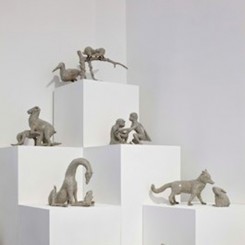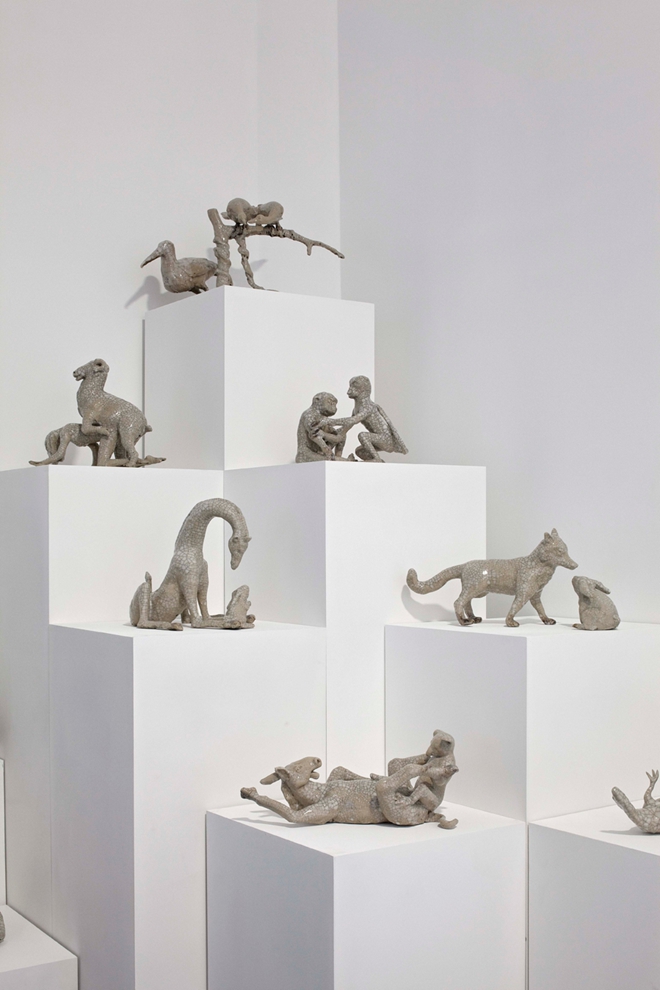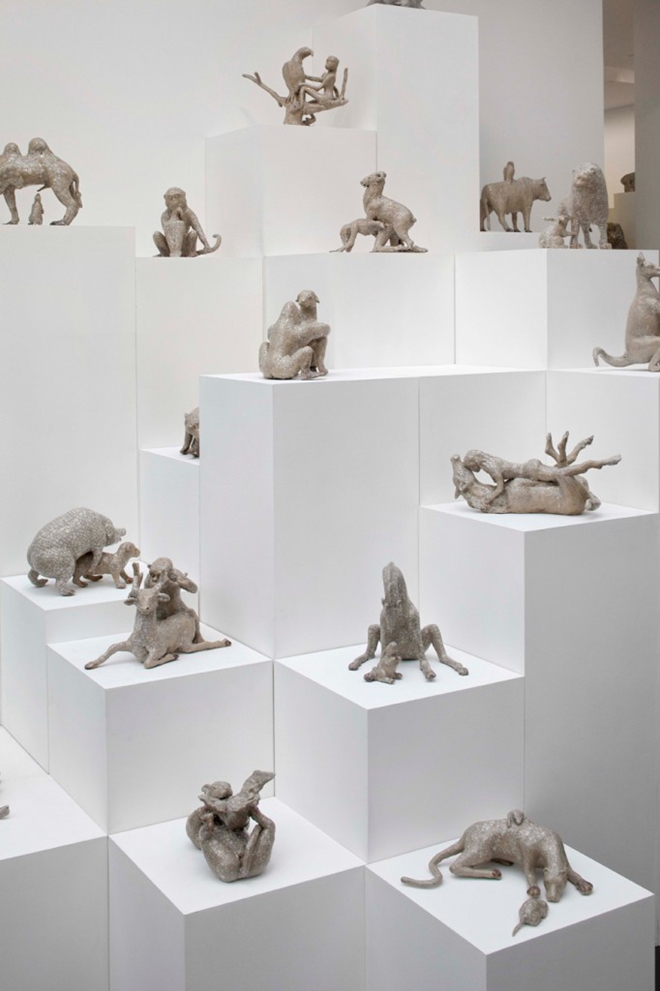There was strict discipline on the ark…Remember; this was a long and dangerous voyage — dangerous even though some of the rules had been fixed in advance. Remember too that we had the whole of the animal kingdom on board; would you have put the cheetahs within springing distance of the antelope? A certain level of security was inevitable…It wasn’t a nature reserve, that ark of ours; at times it was more like a prison ship.
…in Year Two, when the rules had been just a little relaxed…selected travelers were allowed to mingle. Well, Noah caught the ass trying to climb up the mare. He really hit the roof, ranted away about no good coming of such a union ― which rather confirmed our theory about his horror of cross-breeding ― and said he would make an example of the beast. So they tied his hooves together, slung him over the side, dragged him underneath the hull and up the other side in a stampeding sea. Most of us put it down to sexual jealousy, as simple as that.
― Julian Barnes, from A History of the World in 10½ Chapters (1)
In his series Stranger than Paradise, Yang Jiechang brings together a range of technically contrasting artworks, including a number of Chinese style ink and brush paintings on silk, a multi-tiered installation of 200 crackle-glazed ceramic sculptures and a video projection, all of which either represent or relate to an imaginary scene in which animals and people are depicted engaging freely and openly in sexual activity with one another within an idyllic pastoral setting. According to the artist, the imaginary scene of unrestrained sexuality at the centre ofStranger than Paradise is intended as an “11th day” supplement to Boccaccio’s epic poem theDecameron in which all divides―whether religious, ethnic, ideological or political―and their attendant conflicts have been symbolically suspended. As the artist has also indicated, this intended meaning is informed strongly by a Daoist-influenced Confucian belief in a fundamental cosmological interaction/reciprocity between otherwise opposing states of being (yin-yang)(2), and, by association, a traditional Chinese scholarly sense of the social, political and spiritual importance of spontaneity / self-sublimation in accordance with the way (dao)(3) of nature; otherwise referred to within the Chinese intellectual tradition as non-action (wu wei).
Set against the present day context of globalization and continuing economic and political tensions between differing localities, regions and nation states, it is therefore possible to interpret Stranger than Paradise, as Yang himself has suggested, as a critically interventionist work pointing positively towards the possibility of a natural/spontaneous (ziran)(4) global society free from prejudicial conceptions of difference. Indeed, Yang has sought to reinforce such a reading―somewhat paradoxically from a Western cultural point ofview (5)―by strongly emphasizing the unreality of the idyll represented by Stranger than Paradise(a position added to considerably by the artist’s use of a traditional Chinese non-objective “meticulous” style of painting), thereby distancing that idyll from the negativity usually associated with real-world cultural taboos against bestiality.





